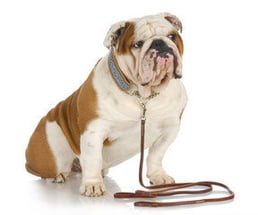To keep up with rising operational costs, we are implementing a 3 percent service fee for all services rendered effective April 2025. We can offset this increase if you choose to pay with cash or check. Thank you for your support and understanding as we continue working to keep prices steady.
Find the Right Dog Training for Your Family
The Central Pet Training Program in Tucson develops and conducts training classes for dogs of all ages.
Training your dog is a great way to ensure that you've got a lifelong companion! We all love our pets, but uncontrollable and destructive behaviors may cause waves in an otherwise wonderful relationship. Dog training not only eliminates unwanted behaviors, but it also strengthens the bond between pet parents and their furry little ones. No matter how long you've had your dog, training is a great way to improve their social skills, create realistic boundaries, and ensure that your bond with your fur-baby lasts a lifetime.


Group Dog Training Classes
Proper dog training is an important part of raising a well-behaved dog. From basic obedience training classes to a board and train program, we offer group training classes for dogs of all training levels. Our expert dog trainers understand that every dog has their individual way of learning. They get to know you and your pet personally allowing them to customize each lesson to your pup in a way they relate to.
Learn more about dog training classes available at Central Pet.

One-on-One Dog Training Classes
There are some dog behaviors that could benefit from individual training courses. If you're concerned about your dog showing aggression towards other people or animals, one-on-one lessons can be a good way to start training before socializing your dog with others.
Talk to your dog trainer about what's going on and they can help you identify which type of training would be best.


Dog Training That WORKS!
What makes dog training at Central Pet different from everywhere else? It works!
Our dog trainers have years of experience and proven results that allow them to provide effective training at very competitive prices. We involve the pet parents every step of the way, giving them the tools needed for long-term success. Our group classes cater to each individual dog, allowing you to fully customize your training experience to you and your dog's specific needs.
Tried other training classes with limited results? Let us show you how it's done!


